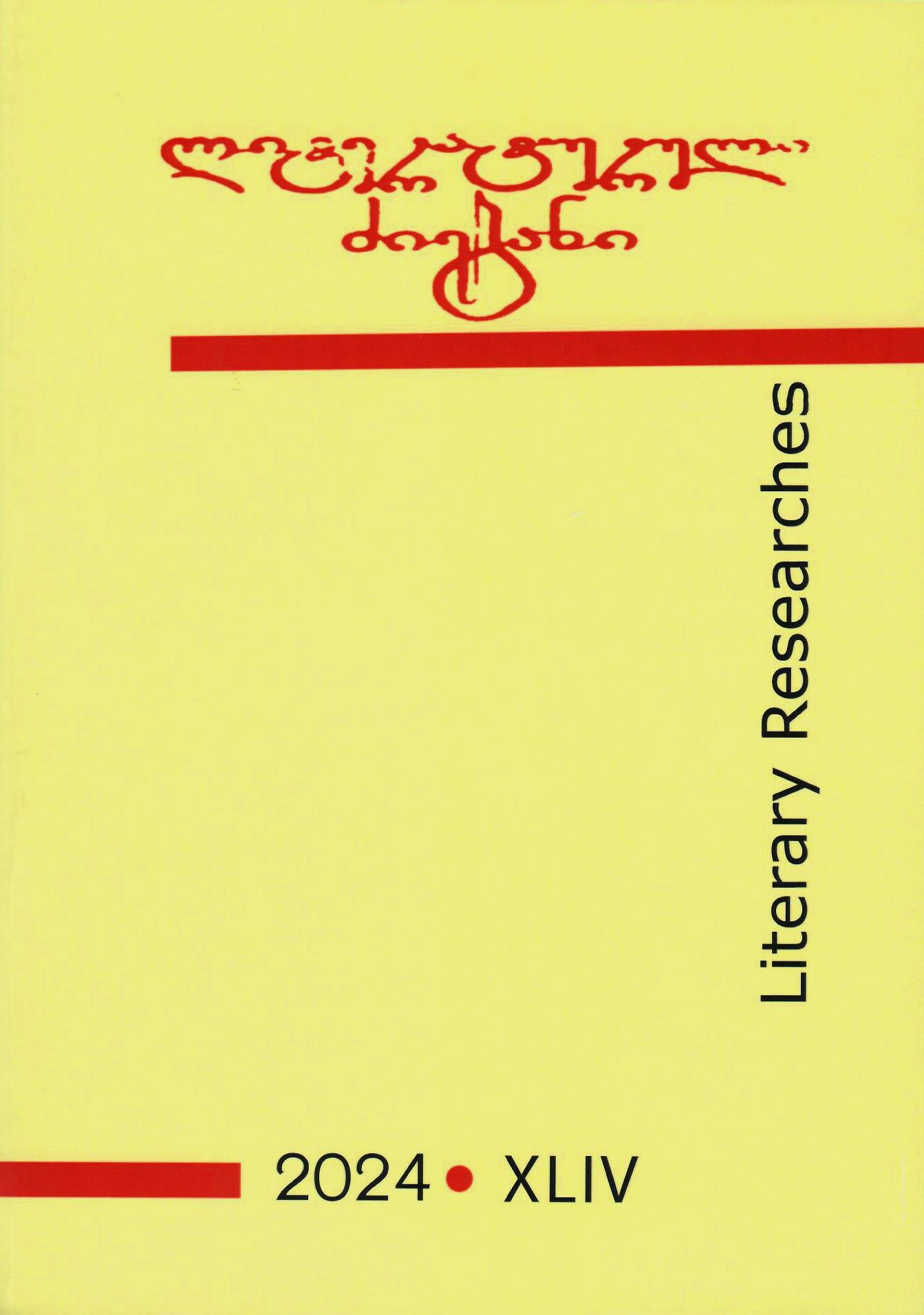Published 2024-11-27
Keywords
- Nikoloz Baratashvili,
- Epigon,
- pseudonym,
- Attribution,
- textology
How to Cite
Abstract
The article echoes Professor Gocha Kuchukhidze's letter "Who is hiding behind the pseudonym Klede-Kaneli (unknown poems of Nikoloz Baratashvili?)". According to the author, two poems under the pseudonym Klede-Kaneli in the Censor Committee Fund of the National Archives of Georgia (folder 480-1-718), titled: "I found the temple" and "God-parent", may belong to Nikoloz Baratashvili, and the family name Palavandishvili written underneath refers to them. On the origin from the archive of Nikoloz Palavandishvili. The poems were submitted for publication in the "Theatre" newspaper. On January 26, 1886, the chief censor, Solomon Melik-Megrabov, was forbidden to print the poems, taking into account the 6th and 9th clauses of the statute of the censorship committee.
Is it possible that Nikoloz Baratashvili is the author of the presented poems? In addition to the public's great interest in the issue, it is my duty as a textologist and scientific head of the Baratashvili project to answer this question! (Project FR-23-10216. 2023 19.12.– 2026 19.12 "Preparation of a new academic volume of the works of Nikoloz Baratashvili and a digital chronicle of the poet's life and work" is supported by the Rustaveli National Science Foundation).
Determining attribution (issue of authorship) in textology requires complex research and is based on the following necessary data: 1. Documentary references (writer's archive, autograph and printed sources, bibliographic lists, biographical references, memories of contemporaries, various types of records, censorship committee materials, prints, etc.); 2. Ideological analysis of texts 3. Linguistic-stylistic research (see studies: Reiser, Opulskaya, Shtokman, Lortkipanidze). However, due to the lack of sufficient documentary material, the researcher may not be able to reach the exact result even by using these methods, that's why in the academic editions of the essays, a section is allocated the so called "Dubia" ("The supposed"), where texts are printed, about the authorship of which there are more or less credible arguments (see studies: Prokhorov, Chrelashvili).
The article presents all the arguments, considering which allows us to prove that the opinion about the origin of the poems from Nikoloz Palavandishvili archive is based only on the assumption of the researcher, and we do not have any other credible argument yet. Also, it is impossible to attribute these poems to Nikoloz Baratashvili, since we do not have enough documentary material for the present time; Ideological and stylistic compatibility of the poems with Baratashvili's poetry is not observed.
Hence, the arguments presented by the researcher are insufficient to determine the attribution of the text. For the same reason, we do not consider the mentioned poems as probable texts, and we do not consider it appropriate to include them in the "Dubia" section at this stage.

